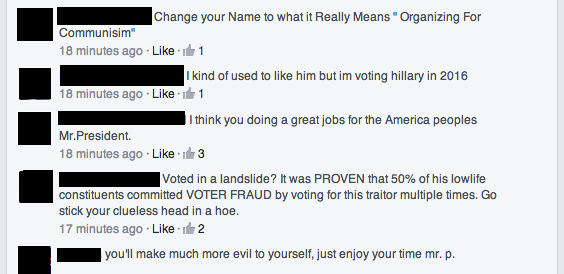
Political discussions on Facebook are, in fact, undermining both people’s relationships and use of the website. A new study from researchers at the Georgia Institute of Technology found that users who try to talk about politics on Facebook are often surprised by the political opinions of their acquaintances. And researchers say that a diverse set of opinions among a user's friends makes everyone want to speak up less.
Consistent with the entire world’s personal experience of Facebook, all 116 participants in the study had been involved in or witnessed a political discussion that turned ugly on the site. What often motivated their changes in behavior, the participants said, was seeing a “weak tie,” or casual acquaintance, express a political opinion that differed from their own.
Per the research paper, “most social networks are clustered in groups of like-minded individuals,” a principle called homophily. Because Facebook not only has a low threshold for “friending” another person but also can bridge together many social groups with a single person’s post, it can be a breeding ground for alienation and resentment.
Facebook discussions were enough relationship stress on weak ties to break them, the researchers said. They suggested that social media has the potential to bridge these gaps in ideology, but the way these Facebook discussions take place is ultimately too polarizing and makes others, even witnesses, gun-shy. The authors recommended some mediation strategies like displaying “a subset of each side of the argument to present a more nuanced display of opinions.”
reader comments
184